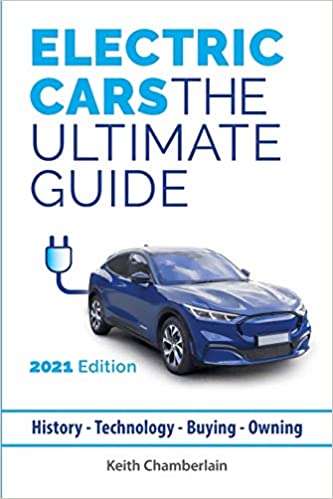Download This PDF Book: Arduino Cookbook: Recipes to Begin, Expand, and Enhance Your Projects 3rd Edition by Michael Margolis, Brian Jepson , Nicholas Robert Weldin, for free.
Want to create devices that interact with the physical world? This cookbook is perfect for anyone who wants to experiment with the popular Arduino microcontroller and programming environment.
You’ll find more than 200 tips and techniques for building a variety of objects and prototypes such as IoT solutions, environmental monitors, location and position-aware systems, and products that can respond to touch, sound, heat, and light.
Updated for the Arduino 1.8 release, the recipes in this third edition include practical examples and guidance to help you begin, expand, and enhance your projects right away—whether you’re an engineer, designer, artist, student, or hobbyist.
Get up to speed on the Arduino board and essential software concepts quickly
Learn basic techniques for reading digital and analog signals
Use Arduino with a variety of popular input devices and sensors
Drive visual displays, generate sound, and control several types of motors
Connect Arduino to wired and wireless networks
Learn techniques for handling time delays and time measurement
Apply advanced coding and memory-handling techniques
From the Preface
Arduino is a family of microcontrollers (tiny computers) and a software creation environment that makes it easy for you to create programs (called sketches) that can interact with the physical world. Things you make with Arduino can sense and respond to touch, sound, position, heat, and light.
This type of technology, often referred to as physical computing, is used in all kinds of things from smartphones to automobile electronics systems. Arduino makes it possible for anyone with an interest—even people with no programming or electronics experience—to use this rich and complex technology.
Who This Book Is For
This book is aimed at readers interested in using computer technology to interact with the environment. It is for people who want to quickly find the solution to hardware and software problems.
The recipes provide the information you need to accomplish a broad range of tasks. It also has details to help you customize solutions to meet your specific needs.
There is insufficient space in this book to cover general theoretical background, so links to external references are provided throughout the book. See “What Was Left Out” for some general references for those with no programming or electronics experience.
If you have no programming experience—perhaps you have a great idea for an interactive project but don’t have the skills to develop it—this book will help you learn how to write code that works, using examples that cover over 200 common tasks.
Absolute beginners may want to consult a beginner’s book such as Getting Started with Arduino (Make Community), by Massimo Banzi and Michael Shiloh.
If you have some programming experience but are new to Arduino, the book will help you become productive quickly by demonstrating how to implement specific Arduino capabilities for your project.
People already using Arduino should find the content helpful for quickly learning new techniques, which are explained using practical examples. This will help you to embark on more complex projects by showing you how to solve problems and use capabilities that may be new to you.
Experienced C/C++ programmers will find examples of how to use the low-level AVR resources (interrupts, timers, I2C, Ethernet, etc.) to build applications using the Arduino environment.
About the Author
Michael Margolis is a technologist in the field of real time computing with expertise in developing and delivering hardware and software for interacting with the environment.
He has more than 30 years of experience at senior levels with Sony, Microsoft, and Lucent/Bell Labs. He has written libraries and core software that are part of the official Arduino 1.0 distribution.
Brian Jepson is a content manager at LinkedIn Learning, where he manages design and engineering courses.
He is also the co-organizer of Providence Geeks, a founding member of the National Maker Faire planning and production team, and coproducer of the Providence Mini Maker Faire.
He shares and spreads knowledge of electronics and digital fabrication through hands-on events and workshops, working closely with AS220, a nonprofit community arts center, and with the Rhode Island Computer Museum (both Rhode Island-based nonprofits).
Nick works at the Rix Centre based at the University of East London, looking into technology that may help people with learning difficulties to get involved in what is happening online and on the computer in front of them.
He is also Senior Technologist for Tinker It! working on various technology projects, often related to Arduino, an open-source electronics prototyping platform based on flexible, easy-to-use hardware and software. Other projects include work with Paddington Arts, Oily Cart Theatre Company and Deafinitely Theatre.
Table of Contents:
1. Getting Started
2. Arduino Programming
3. Mathematical Operations
4. Serial Communications
5. Simple Digital and Analog Input
6. Getting Input from Sensors
7. Visual Output
8. Physical Output
9. Audio Output
10. Remotely Controlling External Devices
11. Using Displays
12. Using Time and Dates
13. Communicating Using I2C and SPI
14. Simple Wireless Communication
15. WiFi and Ethernet
16. Using, Modifying, and Creating Libraries
17. Advanced Coding and Memory Handling
18. Using the Controller Chip Hardware
A. Electronic Components
B. Using Schematic Diagrams and Datasheets
C. Building and Connecting the Circuit
D. Tips on Troubleshooting Software Problems
E. Tips on Troubleshooting Hardware Problems
F. Digital and Analog Pins
G. ASCII and Extended Character Sets
About the Book:
Publisher : O'Reilly Media; 3rd edition (June 9, 2020)
Language : English
Pages : 796
File: PDF, 9 MB
Free Download the Book: Arduino Cookbook: Recipes to Begin, Expand, and Enhance Your Projects
PS: Share the link with your friends
If the Download link is not working, kindly drop a comment below, so we'll update the download link for you.
Happy downloading!







